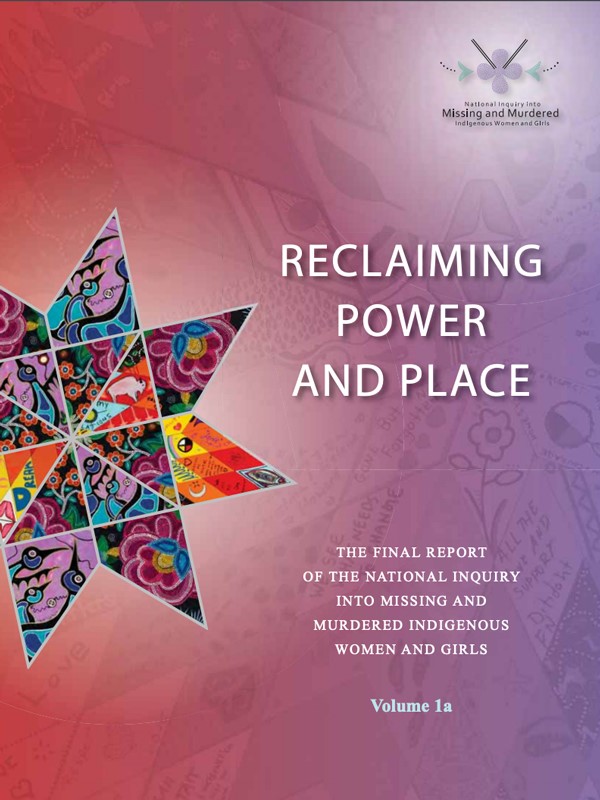Healing Through Crafting for MMIWGM2S
- Date
- February 12, 2025
- Time
- 12:00 PM EST - 2:00 PM EST
- Location
- POD-250, Podium building (380 Victoria Street)
- Open To
- Students, faculty, staff and community members
- Contact
- Cher Trudeau cktrudeau@torontomu.ca

Join the Healing Through Crafting session to honour missing and murdered Indigenous women, girls, men and two-spirit people (MMIWGM2S). Create awareness-raising materials while fostering connection with other community members.
The rate of violence against Indigenous Peoples is a national tragedy requiring urgent action. All people deserve to live in safety, free from violence and abuse.
Participants will have the opportunity to create banners and signs to decorate POD-250 for the evening feast, display in their own spaces and/or bring to the 20th Annual Strawberry Ceremony for MMIWG2S (external link) on February 14.
This event is organized by Indigenous Initiatives in the Office of the Vice-President, Equity and Community Inclusion (OVPECI) and the Indigenous Education Council in the Office of the Provost and Vice-President, Academic.
What to expect
Facilitator Cher Trudeau will share a brief opening about crafting as a practice for grief and healing. Engaging in creative activities can promote health and well-being by relieving stress, creating purpose and occupying the hands while calming the mind.
Participants can create banners, signs and red dress cutouts, which symbolize the thousands of missing and murdered Indigenous Peoples across Turtle Island.
Registration is required.
About Cher Trudeau
Cher K. Trudeau is an Anishinabe cis-woman and registered member of the Sagamok Anishinawbek First Nation with ancestral roots from Wikwemikong Unceded First Nation. Born and raised in Toronto, Cher is both an artist and staff member at Toronto Metropolitan University (TMU).
From a young age, Cher demonstrated a passion for art and was constantly drawing. In her adolescent years, she discovered her talent for fabric arts, and has been honing her sewing skills since high school. She went on to pursue formal education in the field, attending George Brown College for Fashion Arts in Toronto.
As a young adult, Cher embarked on a journey of self-recovery, focused on reconnecting with her First Nation identity through education and work in community. This led her to graduate with honours from the Native Community and Social Development diploma program from Georgian College of Applied Arts and Technology in Barrie.
Cher’s commitment extends beyond personal growth; she is devoted to designing and creating unique, handmade garments that blend contemporary elements with traditional Indigenous regalia. She is committed to the sharing and learning of Indigenous cultures, heritages, traditions and protocols.
MMIWGM2S stands for missing and murdered Indigenous women, girls, men and two-spirit people. The families of missing and murdered Indigenous women have been raising awareness for decades.
In 2023, Statistics Canada released a report showing that Indigenous women and girls were six times more likely to be murdered than other groups of people in Canada. Between 2009 and 2021, Indigenous women and girls made up 2% and 3% of the Canadian population, yet represented 5% and 7% of homicide victims. Learn more.
In 2004, the Native Women’s Association of Canada launched the Sisters In Spirit campaign to address violence against Indigenous women and girls, creating a database of these disappearances for greater coordination and communication across communities.
Through this program, Indigenous communities and allies collectively called for a National Inquiry into Missing and Murdered Indigenous Women and Girls, which took place from 2016 to 2019.
Responding to calls for justice directed at educators
In 2019, the National Inquiry’s final report, Reclaiming Power and Place, (external link) was published, which included 231 calls for justice for governments, institutions, social service providers, industries and all Canadians. These calls, which are “legal imperatives,” can help everyone work to end the genocide of Indigenous Persons and the social systems and values that have maintained colonial violence.
At TMU, we are raising awareness about Red Dress Day and MMIWG2S in response to the calls for justice directed at educators (11.1 and 11.2).

Call to justice 11.1
All educational institutions and authorities should educate and raise awareness about missing and murdered Indigenous women, girls and 2SLGBTQQIA persons and the historical and social contexts for those experiences. All curriculum and program development must be done in partnership with Indigenous Peoples and include, but not be limited to, education on the histories, laws, practices and perspectives of Indigenous Persons.
Call to justice 11.2
All educational service providers should “develop and implement awareness and education programs for Indigenous children and youth on the issue of grooming for exploitation and sexual exploitation.”
This event is wheelchair accessible
The university is committed to the accessibility and inclusion of persons with disabilities. If you require any additional accessibility accommodations to ensure your full participation, please email Cher Trudeau, Administrative Coordinator, Indigenous Education Council and Indigenous Initiatives, at cktrudeau@torontomu.ca.
Questions?
If you have any questions, please email Cher Trudeau, Administrative Coordinator, Indigenous Education Council and Indigenous Initiatives, at cktrudeau@torontomu.ca.

Support is available
Participating in conversations about sexual violence and gender-based violence may bring up difficult feelings. Please reach out if you need support:
- Students can access services through Consent Comes First, the Centre for Student Development and Counselling and/or the Centre for Safer Sex and Sexual Violence Support (external link) .
- Faculty and staff can connect with Workplace Wellbeing Services or access the employee assistance program for resources and counselling.
- External supports include Good2Talk (external link) , the Toronto Rape Crisis Centre (external link) , LGBT Youth Line (external link) , Trans Lifeline (external link) and Support Service for Male Survivors of Sexual Assault (external link) .
TMU community members (students, faculty and staff) who would like report an incident of sexual violence or learn about the options available are encouraged to contact Human Rights Services at humanrights@torontomu.ca or 416-979-5349.